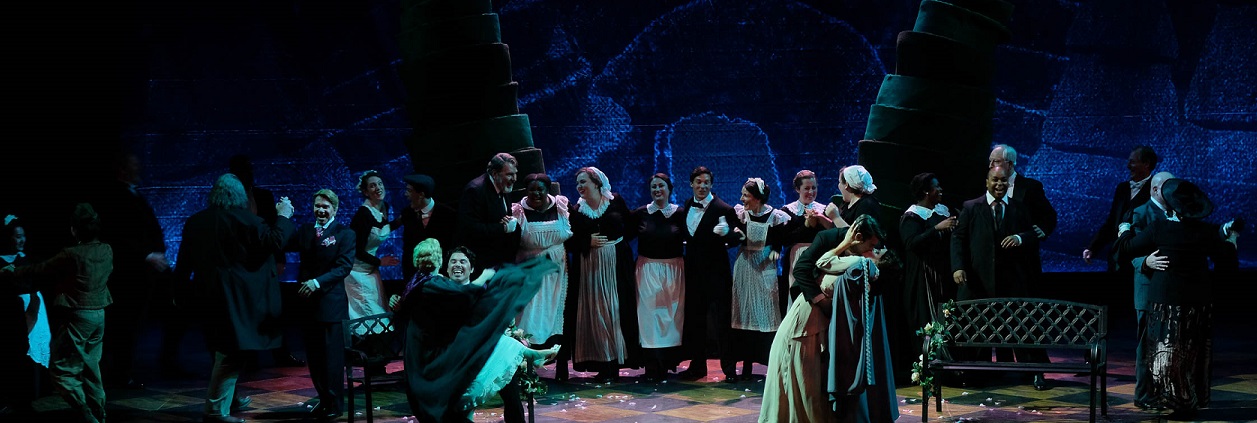Le Nozze di Figaro
PORTLAND, ME
Opera Maine
7/25/18
TO MARK its twenty-fourth season, Opera Maine presented Le Nozze di Figaro, a familiar but formidable work that elicited an enthusiastic response from the large audience at Merrill Auditorium on July 25.
All forces combined to make this Nozze thoroughly engaging. The simple set, designed and lit by Tony-winner Christopher Akerlind, used painted backdrops to indicate the luxurious house and gardens of a noble estate, and the effective costumes by Millie Hiibel were updated to the early years of the early twentieth century. Opera Maine artistic director Dona D. Vaughn led her performers to emphasize the reality of their relationships and situations. Recitatives were delivered as true conversations among the characters as they connected with each other. The dramatic and musical pacing was excellent throughout, and the complex finales benefited from the fluid staging, as well as from conductor Stephen Lord’s lively tempos.
The opera presents a variety of challenges with its almost equal measures of hilarity and poignancy and the demands of ensemble work in the Act II and Act IV finales. The role of Count Almaviva, problematic at any time and never more so than in today’s climate, is often portrayed as a typical womanizing scoundrel, with hardly a redeeming feature. Keith Phares brought out all the contradictions of the character while never minimizing his dominance and powerful sense of entitlement. Phares’s baritone was impressive and resonant throughout, ranging from his furious “Vedro, mentr’io sospiro” to his beautifully modulated final plea, “Contessa, perdono,” emphasizing his humanity and at least a sincere intention of reforming. The Figaro and Susanna were well-matched as Almaviva’s principal adversaries. Maeve Höglund was a charming, feisty Susanna, and her stellar soprano brightened the ensembles. Her fine rendition of “Deh vieni, non tardar” was equally impressive for its warmth and feeling. Robert Mellon’s excellent comic timing made Figaro a masterful mischief-maker. His flexible baritone suited this lighthearted interpretation. Danielle Pastin made the Countess sympathetic and ably met the vocal demands of the role, performing most affectingly in the later acts. Her “Dove sono” was stately yet vulnerable.
Making her professional debut as Cherubino, mezzo-soprano Hongni Wu displayed the talent that made her a winner in the Metropolitan Opera National Council Auditions in 2018. Wu’s slender figure and delicate features may not make her the most convincing young boy, but her richly colored voice and excellent phrasing were most impressive in both of her arias, especially “Voi che sapete.”
The trio of veterans cast as the conspirators acquitted themselves with style. Bass Kevin Glavin’s strong Don Bartolo provided much humor, and MaryAnn McCormick’s Marcellina was notable for her fine singing, as well as her amusing characterization. Robert Brubaker was an appropriately self-important Don Basilio. Yi Wang contributed a sweet, yet impish Barbarina, singing “l’ho perduta, me meschina” with a pure and appealing tone. —Cornelia Iredell

